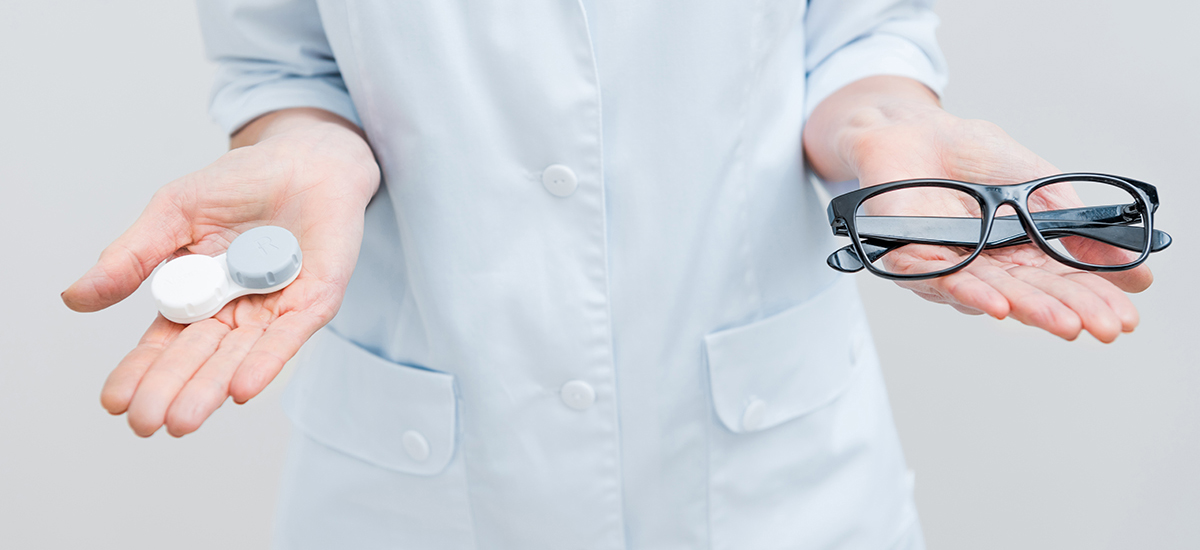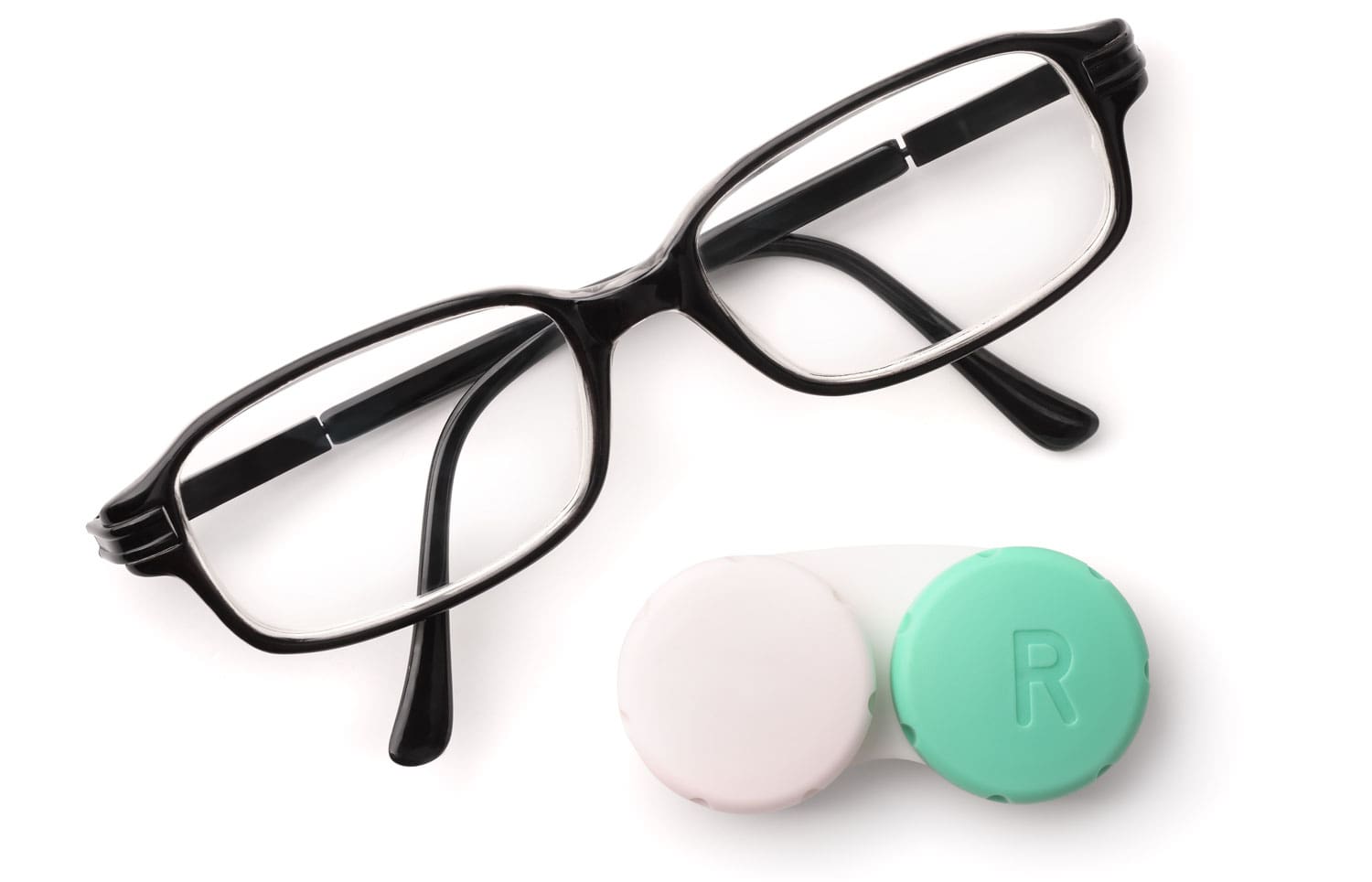Everything You Need to Know About Contacts vs. Glasses

Here are some advantages and disadvantages of contacts vs. glasses:
- Contacts must be cleaned and replaced often, but they are less noticeable than glasses.
- Contacts can lead to eye infections, but they do not obstruct your vision.
- Glasses may be fragile, but they can protect your eyes better than contacts.
- Glasses may impair your vision in some cases, but they can last longer than contacts.
If you think prescription lenses would benefit you, then trust the eye care experts at For Eyes to help you choose between contacts vs. glasses.
In your recent eye exam, did you find out you need prescription lenses? You’re not alone. In fact, according to the Vision Council of America, 75% of adults need prescription glasses or contacts. With the majority of adults in need of vision correction, it begs the question--which is better: contacts vs. glasses
Your choice between contacts vs. glasses will depend on your lifestyle and personal preference. However, to help simplify your choice, let’s compare the pros and cons of both options.
Advantages of Contacts
1: Contacts are less noticeable.
Unlike most glasses, contacts are easy to conceal. If you don’t want frames to detract from your style, contacts are the easy choice between contacts vs. glasses.
2: Contacts do not obstruct your vision.
While thick frames on glasses can impair your vision, contacts are applied directly to your eyes. This prevents light reflections and can help farsighted people focus better on what is nearby.
Disadvantages of Contacts
1: Contacts must be cleaned and replaced often.
Contacts may be easy to hide. However, they must be cleaned daily and replaced every 30-90 days. It may be costly to invest in new contacts and cleaning solutions.
2: Contacts can lead to eye infections.
To remove and clean your contacts, you must touch your eyes often. This makes you more likely to get an eye infection. Make sure to thoroughly wash your hands with every use.
Advantages of Glasses
1: Glasses protect your eyes.
The lenses of your glasses are powerful. Often, they feature UV protection to safeguard your eyes from the sun and other blue-light sources. The UV protection in your glasses exceeds any built-in UV protection in your contacts. If you purchase contacts, you would still need glasses to ensure your eyes are protected from UV rays.
2: Glasses last longer.
While contacts must be replaced often, your glasses can 1 - 2 years or longer. You would only need to replace your lenses if your vision changes, saving you time and money.
Disadvantages of Glasses
1: Glasses can be fragile.
Glasses are susceptible to getting damage. Fortunately, your local For Eyes can repair your glasses for free, as a part of our lifelong guarantee.
2: Glasses can impair your vision.
While glasses are designed to protect your eyes, they can do the opposite. For instance, if your lenses become foggy or blurry due to the rain, it may become challenging to see. This can be dangerous if you’re driving.
Summary of Contacts vs. Glasses
Before choosing between contacts vs. glasses, consider how active your lifestyle is and the qualities you value the most. For instance, if you are an athlete, contacts are a great option. If you work in a hazardous environment, opt for glasses. If you value versatility, why not get both?

Here are some advantages and disadvantages of contacts vs. glasses:
- Contacts must be cleaned and replaced often, but they are less noticeable than glasses.
- Contacts can lead to eye infections, but they do not obstruct your vision.
- Glasses may be fragile, but they can protect your eyes better than contacts.
- Glasses may impair your vision in some cases, but they can last longer than contacts.
If you think prescription lenses would benefit you, then trust the eye care experts at For Eyes to help you choose between contacts vs. glasses.
Book your eye exam at For Eyes
Have you had your annual comprehensive eye exam? Schedule an appointment with an Independent Doctor of Optometry at your local For Eyes.







